# 9 Why Do We Seek a Home Away From Home?
On escaping routines, finding stable ground, and why I keep coming back to Hội An, Vietnam.
Lunar New Year Celebrations
The lion dances to the beat of drums and draws a crowd. I watch transfixed as two acrobats inside the lion costume jump like frogs. They make the lion come alive to salute Tra Que’s Farmers’ Day. It’s the end of TET, Vietnam’s weeklong celebration of the lunar new year that involves abundant flowers and flags, family get-togethers, kumquat trees pruned like bonsai, fireworks, karaoke, lanterns, and drinks: một, hai, ba, dô!—counting up toward cheers.
It’s the year of the dragon, and as a dragon I can expect luck, strength, and prosperity to come my way.
Today’s ceremony on the island village of Tra Que is more sober, with priests chanting, officials in suits looking serious, and a few women dressed in áo dài. But it still ends with a bang. The yellow lion is joined by a blue one and together they perform an engaging pantomime expressing myth, history, and the consumption of crops.
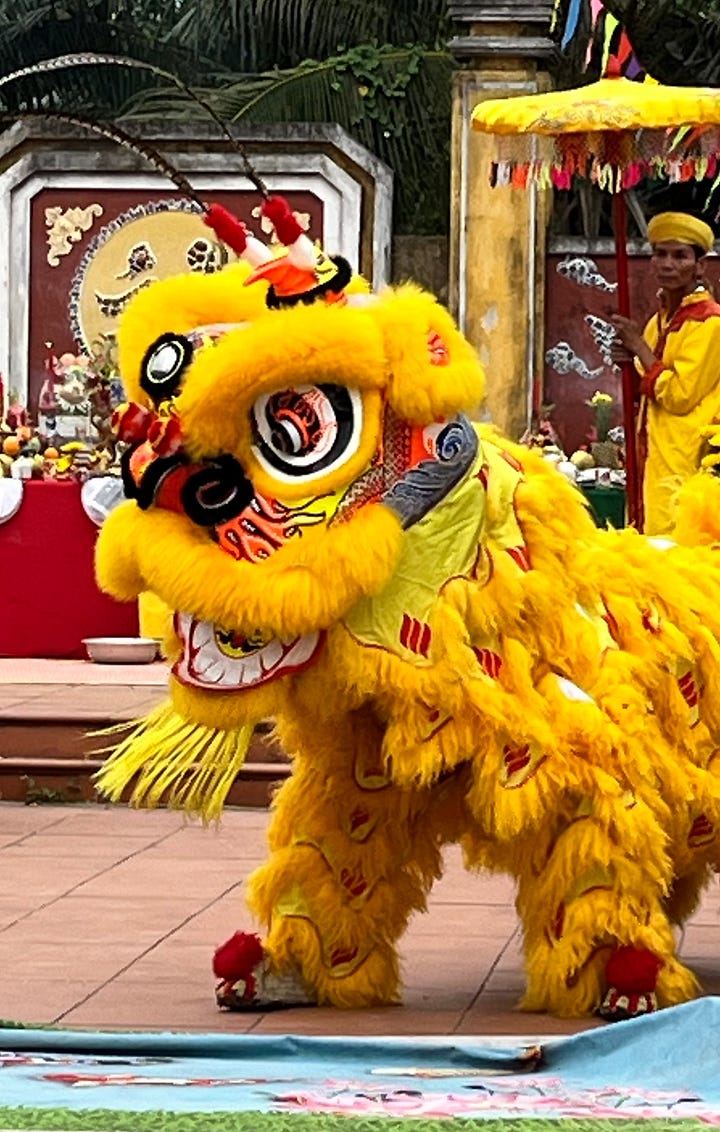
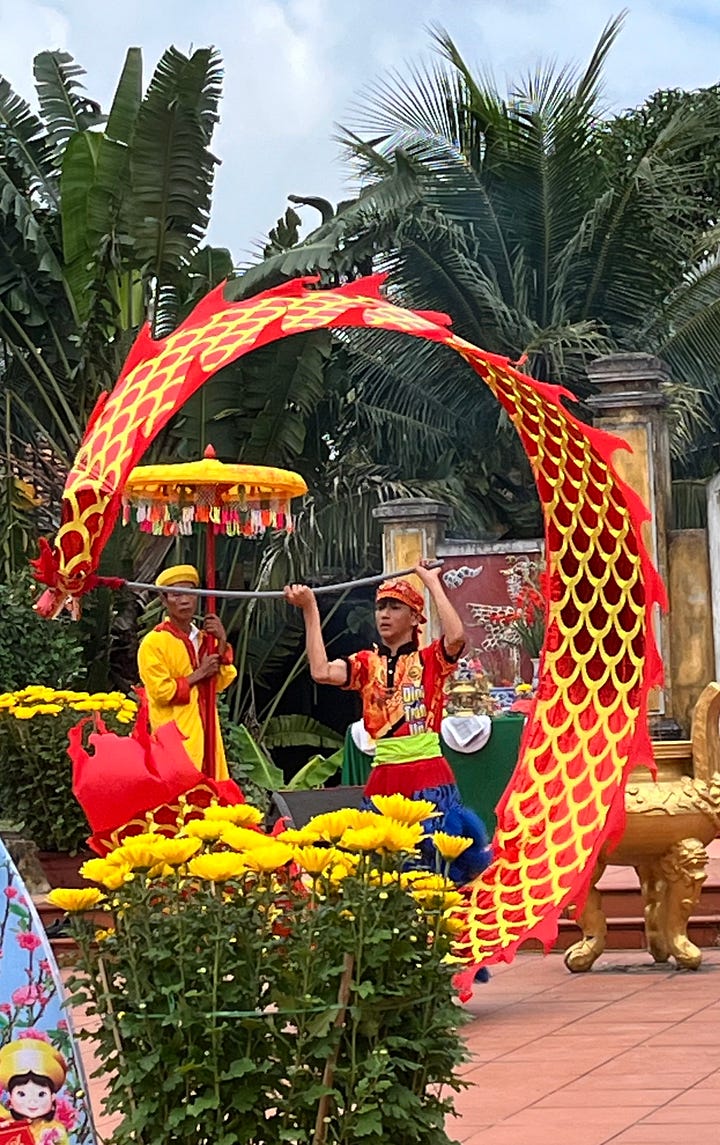
Tra Que Island
Tra Que island looks like a patchwork of browns and greens. The earth is divided in hundreds of narrow plots of land on which cabbages, salads, and herbs grow. There’s hardly a dish in the Vietnamese cuisine that doesn’t call for mint, basil, perilla, coriander, parsley, chives, or any of the other herbs whose names I don’t yet know. There’s one herb that tastes like fish, and whenever the ladies on the An Bang market try to sell it to me, lifting a handful of the meshed greens from their red plastic baskets, they look at me mischievously, having learned that for Westerners this herb is an acquired taste.
The people who tend the vegetable gardens have come to the temple to pay their respect to the ancestors and ask for their crops to be blessed. I’m here to observe the ceremony and get photographed: Farmers’ Day is not (yet) a tourist attraction, so the locals notice my presence and document the interest of a foreigner in their culture. Little do they know that I often think of this place as my home.
It’s here on Tra Que, between Hội An’s old town and An Bang beach, that I spent the pandemic’s first lockdown. It’s here that I first heard the plaintive cuckoo and fell in love with its distinct call, haunting and hopeful in its repetition. It’s here that I return, again and again.
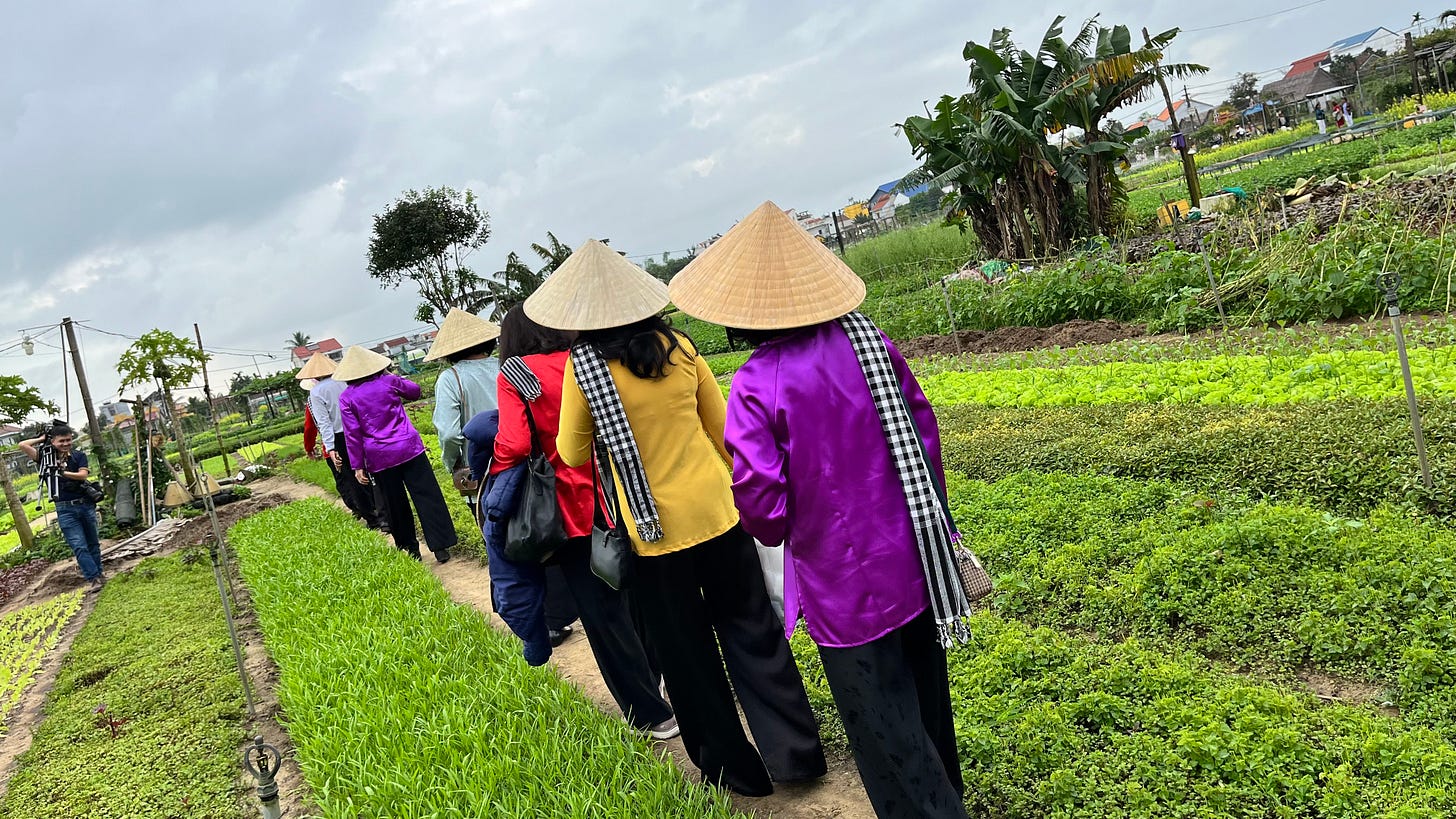
What does home mean?
Home has a different meaning for everyone. Some people will first think of their house, the place where they retreat from the world. Others might call their birthplace their home. For me as a nomad, home has become a feeling of safety and potential.
When we travel, we leave our homes behind for a variety of reasons. We may simply want to flee the dark-cold-rain. We may be in need of a break and relaxation. But I believe most of us travel in the hope to gain something more substantial: an understanding of the world, self-knowledge, a transformation.
At home, we’re settled in our routines. We can get work done because we’re not constantly trying to figure out how to feed ourselves or get from A to B. Bored by our habits, however, we can feel stuck and long to break free.
Escaping routines
Leaving behind what we know, leaving our familiar environment, is the essence of traveling. We escape our homes to regain the power to redirect our lives. This is an act of courage. We don’t travel to find safe zones. We’re willing to sacrifice comforts and certainties in exchange for unexpected experiences that promise us change. Being vulnerable and even a little afraid when we travel can be helpful. It means something is at stake. On a journey with nothing to fear, it’s likely that nothing important will happen.
But if we set out to escape our routines, why do we fall for accommodations that promise us a home away from home? Why do we want soft lighting and fourteen pillows on the bed? Why do we seek a new home when we’re trying to get away from the familiar?
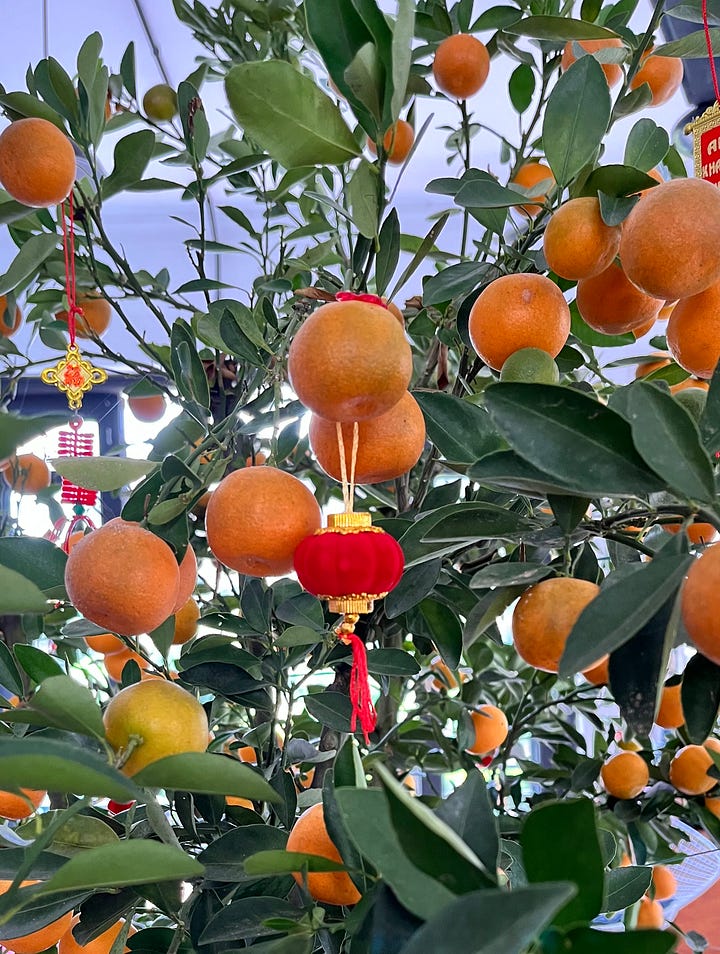
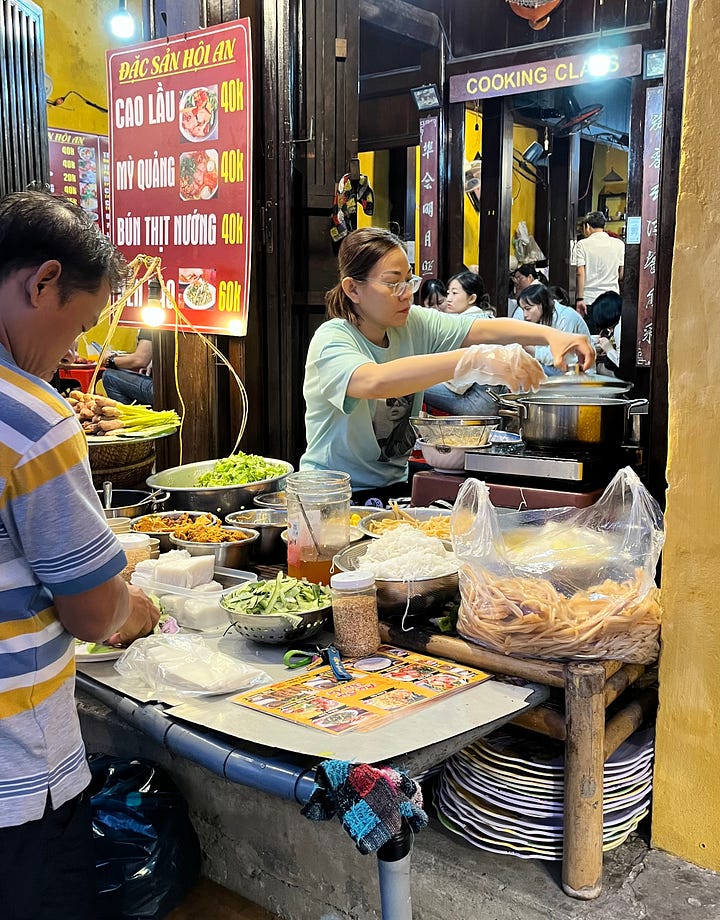
Stable Ground
I believe it’s because we allow ourselves to change most readily when we don’t feel entirely lost. It’s necessary to step out of our comfort zone to experience personal growth. But when we’re too scared or overwhelmed or exhausted, we will shut down. After a day of roaming a foreign city, negotiating for what we want in a strange language, being jostled about in an overbooked train, we desire a safe haven in which to retreat and gather ourselves.
In our vulnerability we need a stable ground for change to transpire. This ground can be a door with a reliable lock, a village we know well, the person we travel with, or a bed with fourteen pillows. In our home away from home, we can let our guard down and examine ourselves.
Where am I? What have I learned today or experienced for the first time? How have I touched the lives of others?
Best Herb Salad of the World
I don’t belong among the farmers of Tra Que. I seem to have little in common with them and don’t speak their language. And yet I feel at home.
When the pandemic started and my world narrowed with anxiety, I walked among the plots of land and watched how quickly the herbs sprouted. I witnessed the vegetables grow and being harvested. It helped me to see these small wonders. The island that was totally unfamiliar to me when I arrived, even a bit menacing with growling dogs and hesitant locals, has now become a place where I face the future with confidence.
In my memoir in progress I word it like this: “I feel as though I might rise to be my best self by being here, a self that is compassionate and loyal and part of a larger whole.”
At the end of Farmers’ Day, Daniel and I enjoy a dinner with two dear friends and eat the best herb salad of the world. The waterwheels in the shrimp pond are turning, the breeze rustles the palm fringes overhead, and in the distance sounds the unmistakable call of the plaintive cuckoo. It has become my auditory madeleine. The moment I hear this bird, I feel at home.
Author News
Yesterday, the travel website www.sheswanderful.com published my profile on Swing Love’s founder Châu Quỳnh Lê.
“Meet the woman whose love for swing dance inspired her business in handcrafted sustainable leather shoes in Vietnam.”
Besides being a talented shoe designer, Châu is a truly wonderful human being, and I had a lot of fun talking to her about her work. She’s actually one of the dear friends with whom I enjoyed the herb salad mentioned above.
I would be grateful if you checked out the article, even more grateful if you checked out Swing Love’s awesome shoes, and forever in your debt, I guess, if you ordered a pair of Swing Love shoes. Just keep in mind that you will likely love your shoes so much that you’ll be forever grateful I asked you for this favor.
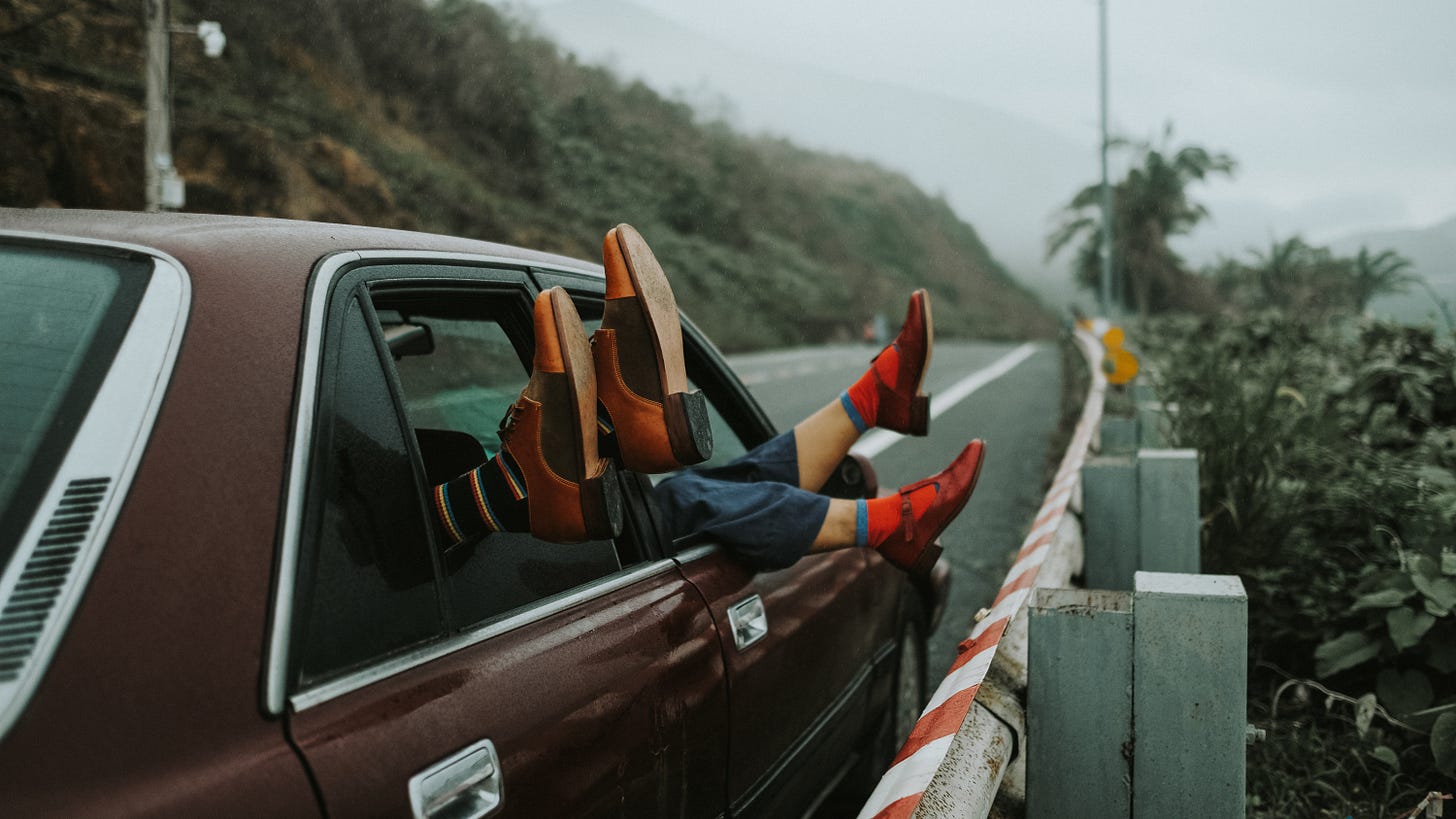
Time to Say Goodbye
I had more to say about the meaning of home when we travel than I could fit in this newsletter, so I also wrote a part 2:
In the same newsletter, I will share some of my favorites places in Hội An and recommend books relating to Vietnam.
All my best,
Claire
P.S. What does a home (away from home) mean to you?





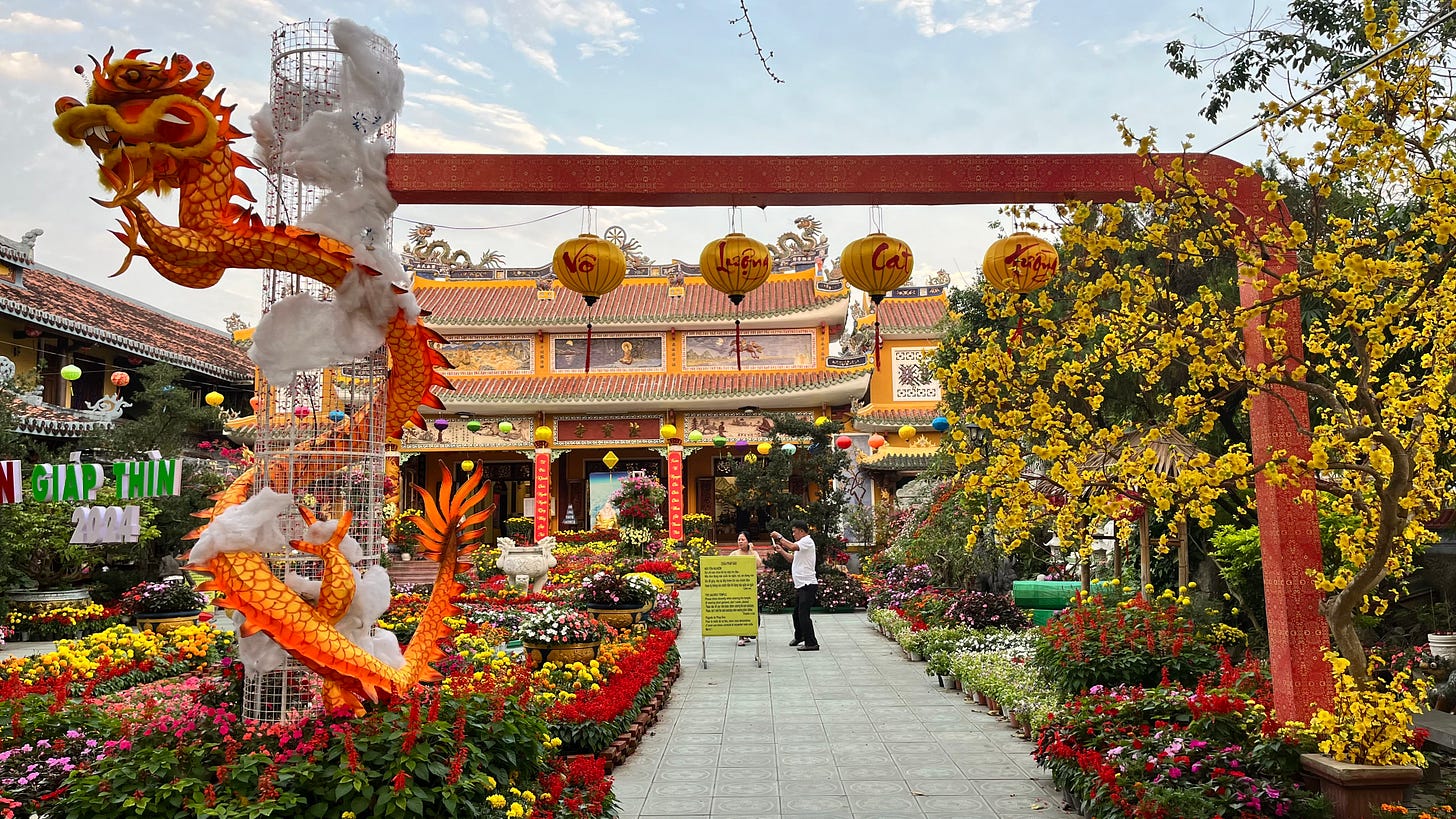
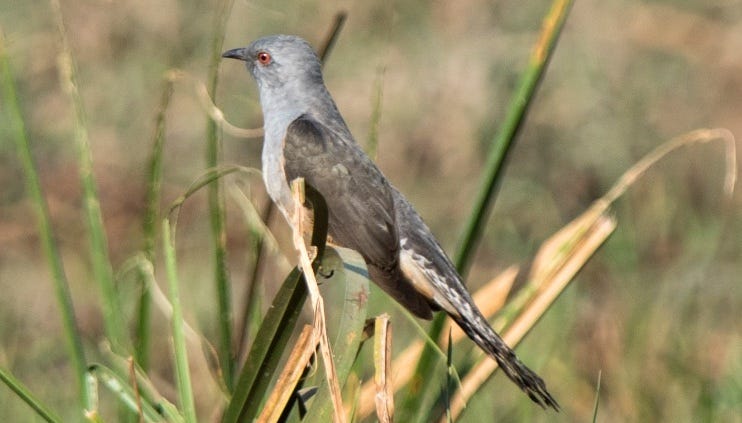
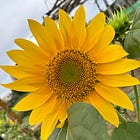
I know if u weren’t a nomad, u would buy kilos upon kilos of hand made CLOTHES from ALL the TAILORS in HOI AN!!!!!!
We loved Hoi An. Thanks for the evocative words bringing back some lovely memories!